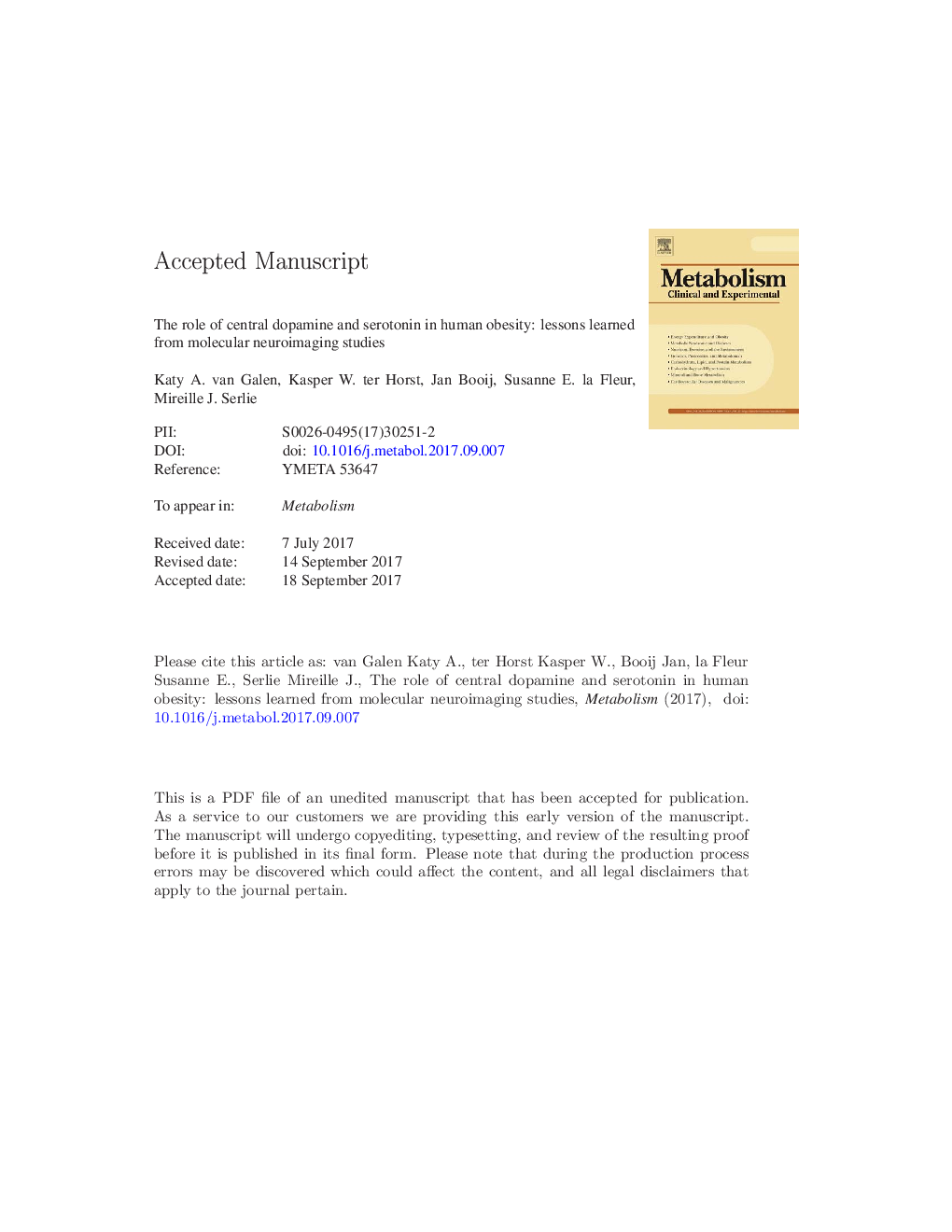| Article ID | Journal | Published Year | Pages | File Type |
|---|---|---|---|---|
| 8632860 | Metabolism | 2018 | 40 Pages |
Abstract
Obesity results from an imbalance between energy intake and expenditure, and many studies have aimed to determine why obese individuals continue to (over)consume food under conditions of caloric excess. The two major “neurotransmitter hypotheses” of obesity state that increased food intake is partially driven by decreased dopamine-mediated reward and decreased serotonin-mediated homeostatic feedback in response to food intake. Using molecular neuroimaging studies to visualize and quantify aspects of the central dopamine and serotonin systems in vivo, recent PET and SPECT studies have also implicated alterations in these systems in human obesity. The interpretation of these data, however, is more complex than it may appear. Here, we discuss important characteristics and limitations of current radiotracer methods and use this framework to comprehensively review the available human data on central dopamine and serotonin in obesity. On the basis of the available evidence, we conclude that obesity is associated with decreased central dopaminergic and serotonergic signaling and that future research, especially in long-term follow-up and interventional settings, is needed to advance our understanding of the neuronal pathophysiology of obesity in humans.
Keywords
Serotonin 2C receptorD1R5-HT2CBmaxD2RDAT5-HT2AD3RROI5-HT4Dopamine transporterstandard deviationHumansSPECTNeuroimagingsingle photon emission computed tomographyPositron emission tomographyDopamineSERTSerotoninserotonin transporterbody mass indexBMIObesityregion of interestPETbinding potentialDopamine D1 receptorserotonin 2A receptorSerotonin 4 receptor
Related Topics
Life Sciences
Biochemistry, Genetics and Molecular Biology
Endocrinology
Authors
Katy A. van Galen, Kasper W. ter Horst, Jan Booij, Susanne E. la Fleur, Mireille J. Serlie,
